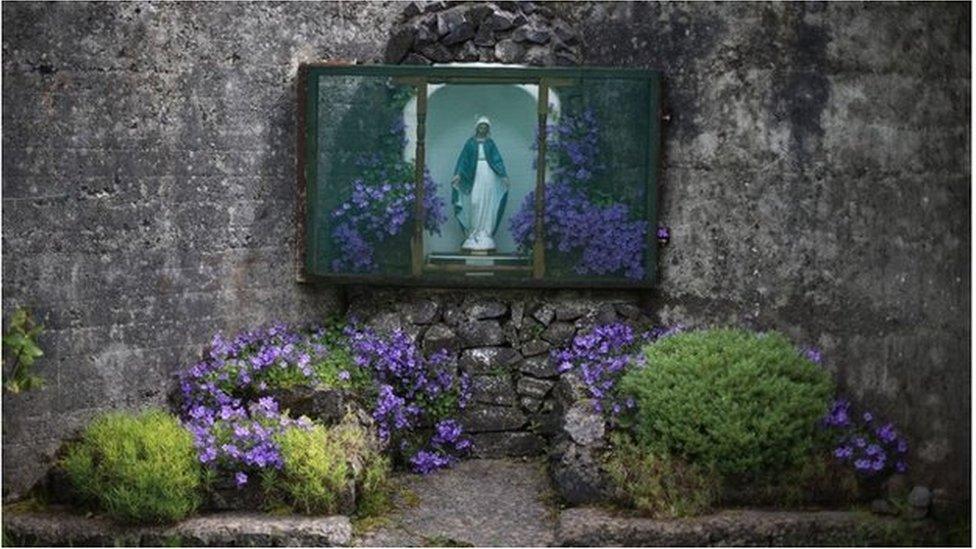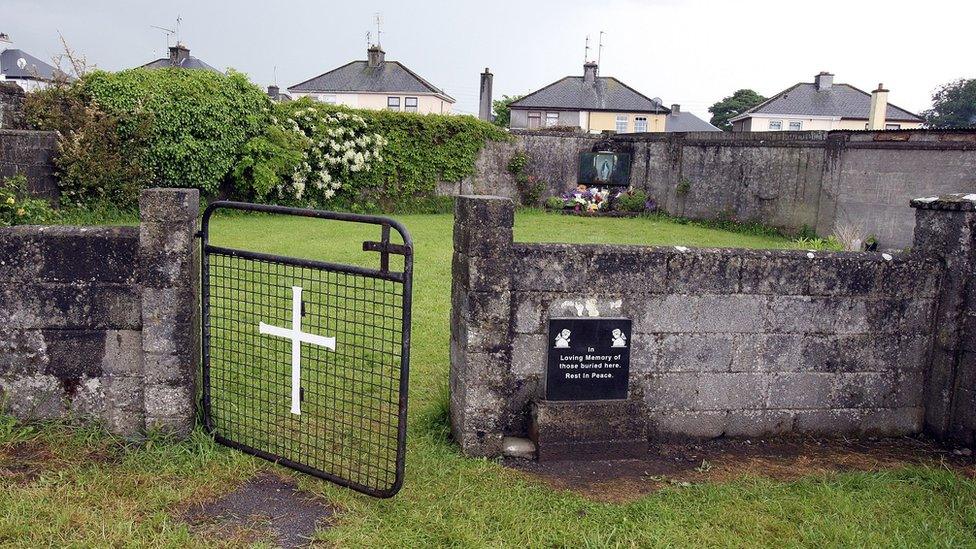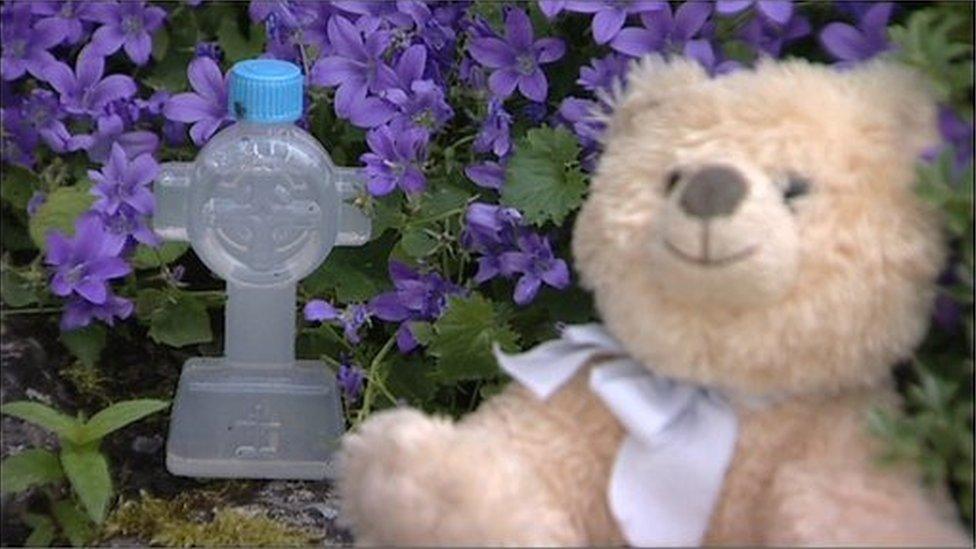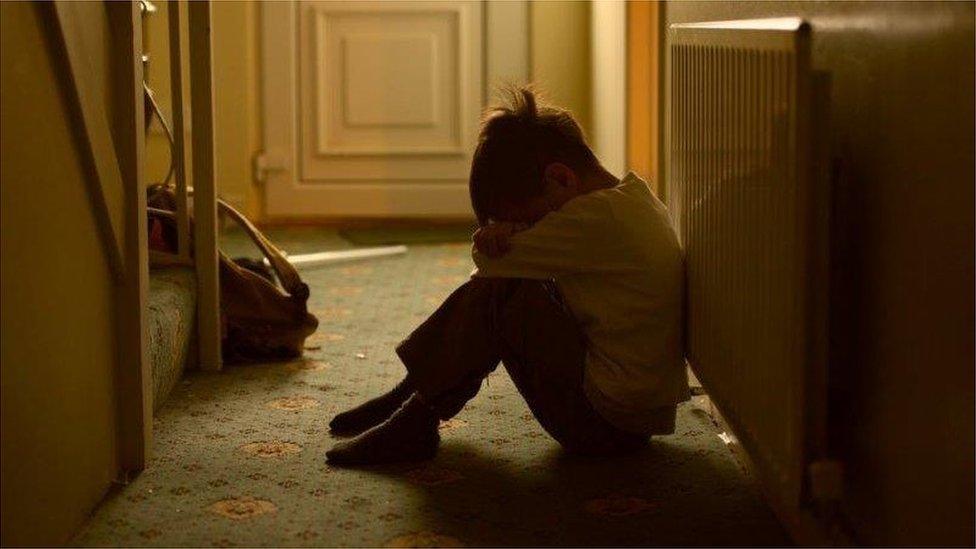Mother and baby homes: Adoptees and survivors can access information
- Published

The controversial bill will see thousands of records relating to mother and baby homes sealed for 30 years
The Irish government has said adoptees and survivors of mother and baby homes will be legally entitled to access their personal data.
Earlier this week Irish President Michael D Higgins signed the controversial mother and baby homes bill, external into law.
Opposition parties and campaigners raised concerns the legislation would see some records sealed for 30 years.
But ministers have now said this will not be the case, after legal advice.
It follows an angry backlash over how the information gathered by the Mother and Baby Homes Commission would be used.
Much of the evidence it heard was given in private and legally protected.
A database of 60,000 records is to be transferred to the child and family agency Tusla, while the remaining records will be sealed for 30 years.
Campaigners and some of those seeking more information about their own life story, including their natural mother and their adoption, said sealing the records for 30 years would deny them an opportunity to find out more about themselves and their history.
'Regrets the hurt'
An Irish Government statement on Wednesday evening said the cabinet had a "detailed reflection" on issues raised in recent days, and said it "acknowledges and regrets the genuine hurt felt by many people."
Minister for Children Roderic O'Gorman said he consulted with the office of the attorney general , which confirmed that GDPR (data protection) laws do apply to the archive from the Mother and Baby Homes Commission of Investigation.
"That is an important clarification that we have now," Mr O'Gorman said.
"It is not the solution to all the issues as regards access to information, but it is a significant development and I welcome that clarification," he told RTÉ News.

The plight of the mothers and their children became an international news story after the discovery of "significant human remains" on the grounds of a former home in Tuam
Anyone seeking to get information from the archive through GDPR will have to prove that their application does not infringe on the rights of others.
Mother and baby homes were established across Ireland in the 19th and 20th centuries.
The institutions housed women and girls who became pregnant outside marriage.
Most of the babies and children were later adopted or spent time in orphanages.
They became an international news story in 2017 after "significant human remains" were discovered in the grounds of a former home in County Galway.
As a response, the Irish government established an Independent Mother and Baby Homes Commission.
The commission's 4,000-page report is due to be delivered on Friday but it will not be published until December or January.
- Published26 October 2020

- Published26 October 2020

- Published11 January 2018
